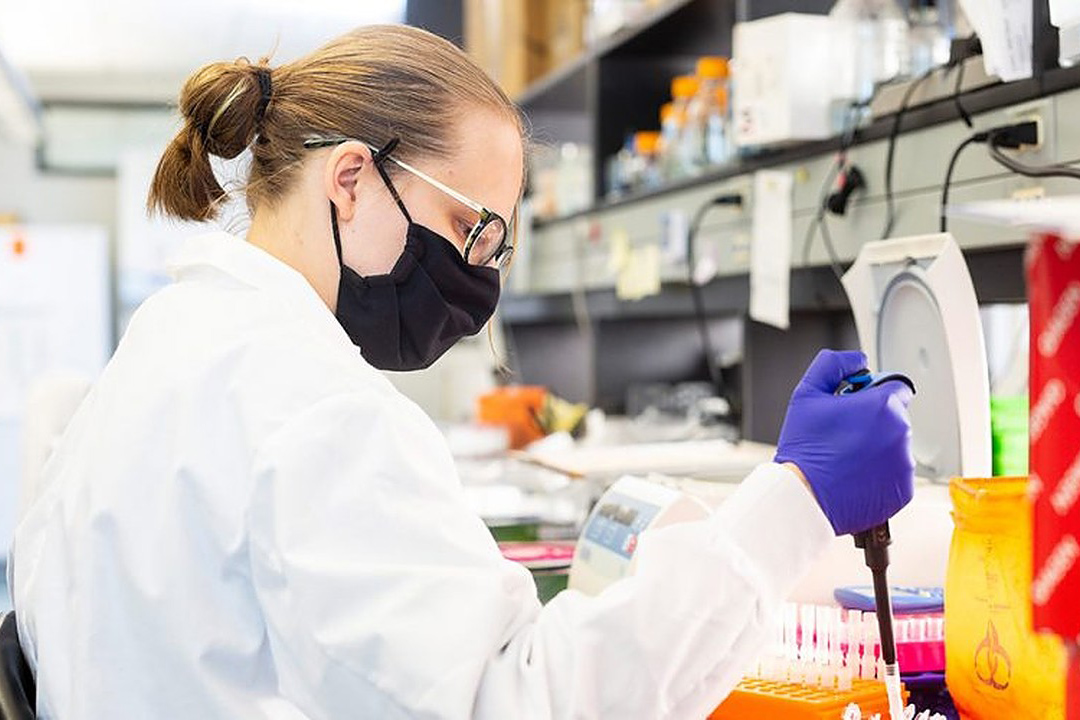
University innovation and research key to global recovery
The impact of the personal and economic sacrifices the world experienced during the pandemic will be felt for years. In these unsettling times, Dr. Baljit Singh (PhD), the Vice-President, Research at the University of Saskatchewan (USask) says Canadian-based research and innovation offer hope and a source of pride, at a time when they are deeply needed.
As an example, he points to researchers at USask’s VIDO — the Vaccine and Infectious Disease Organization — who were ready to step up in the world’s most pressing time of need. This response was made possible thanks to visionary leaders in 1975 supporting the establishment of a centre to understand and battle infectious diseases. Today, VIDO has grown into a world-class research institute that is an innovative leader in developing vaccines that protect human and animal health.
“VIDO researchers were the first in Canada to isolate the SARS-CoV2 virus, and the first to develop an animal model of COVID-19. In the coming months, VIDO operations will expand to include vaccine manufacturing,” says Singh.
Singh says we have learned that vaccines by themselves cannot offer all the answers to the crisis created by a pandemic. “We need to bring innovation to other facets of our operations with the same foresight and determination that brought VIDO to Canada’s fore over the past five decades,” Singh says. “The blows from the pandemic disproportionately affected marginalized and remote Indigenous communities, and groups of newcomers, compared to other Canadians. To prevent from this happening in the future, we need robust social sciences and humanities analysis and leadership from scholars.”
Canadians, and indeed the world’s population, have seen medical researchers develop a vaccine in real-time and some express inoculation hesitancy. The role of policy experts and communicators becomes crucial in reassuring people safety of the process that led to what might seem a fast vaccine development.
“Our research in the humanities is vitally important at a time when Canadians are re-evaluating their way of life, and looking for inspiration and innovation from creative endeavours to find meaning in difficult times,” he says. “Whether it is examining public policy, exploring the potential of the arts or otherwise adding to a body of scholarly work, these pursuits will help shape how we innovate and emerge from the COVID-19 crisis. Universities play a vital role in all of these areas.”
Whatever crisis the world faces next — whether it is food security, access to quality water, threats to the environment, upheavals resulting from climate change, or a proliferation of conspiracy theories that create social unrest and political chaos, we can’t wait until disaster is imminent before we start looking for innovative science-based solutions. Singh says the work must be ongoing. USask, like many Canadian universities, is deeply embedded in its community and is a crucial link in the innovation ecosystem. Singh says the institution also embraces multiple approaches to research, including Indigenous ways of knowing, land-management and living in harmony with the environment.
“Imagine how the global economy would have collapsed and chaos would have emerged without strong science, devoted university research, and evidence-based decision making,” he says. “Whether it is in a lab or out in the field, university researchers are already uncovering the solutions the world will need next. Throughout our history, USask has demonstrated that we are ready to be the university the world needs — this has never been more evident than during the pandemic.”

